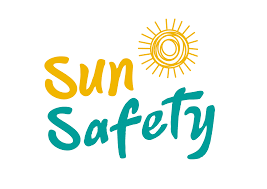UV Safety is essential in summer sun
The Fourth of July has come and gone and, for some, it feels like summer is almost over. However, there is still much time ahead to enjoy the beautiful weather and warm sunshine so it is important that you practice good UV safety habits.
UV rays, or ultraviolet radiation, only make up a small portion of the sun’s rays but they are the primary cause of the sun’s damaging effects on the skin, specifically the DNA of skin cells. Because sunlight is the main source of UV rays, individuals who are exposed more frequently to the sun are at greater risk for getting skin cancer than those who have limited sun exposure. Therefore, it is crucial that, whenever you are going to be out enjoying the sun, you protect yourself from harmful UV rays by:
- Applying sunscreen to your face and any other parts of the body that will be exposed. While no sunscreen protects you completely, sunscreens with broad spectrum protection (against both UVA and UVB rays) and with sun protection factor (SPF) values of 30 or higher are recommended
- Wearing a hat to protect your face
- Putting on sunglasses to protect your eyes and the skin around your eyes from the bright sunlight
Depending on the color of your skin, your ethnic background and age, some people are more susceptible to getting skin cancer or to experiencing sun damage than others. While people with light skin are much more likely to experience sun damage than others, this is not to say that sun damage can’t affect someone who has darker skin as well. You need to proceed with extra caution if you:
- Have had skin cancer before
- Have a family history of skin cancer, especially melanoma
- Have many moles, irregular moles, or large moles
- Have freckles and burn before tanning
- Have fair skin, blue or green eyes, or blond, red, or light brown hair
- Live or vacation at high altitudes (strength of UV rays is stronger the higher the elevation)
- Live or vacation in tropical or subtropical climates
- Stay indoors all week and then get intense sun exposure on the weekends
- Spend a lot of time outdoors
- Have certain autoimmune diseases, such as systemic lupus erythematosus (SLE or lupus)
- Have certain inherited conditions that increase your risk for skin cancer
- Have a medical condition that weakens your immune system
- Have had an organ transplant
- Take medicines that lower or suppress your immune system
- Take medicines that make your skin more sensitive to light
In addition to the sun’s harmful UV rays, it is just as important to be mindful of the heat and high temperatures outside. Being exposed to the sun and spending too much time in the heat can cause heat stroke and dehydration. When going outside, don’t forget your sunscreen and always remember to have a water, vitamin water, Gatorade or Powerade handy. Hydration is key when it comes to beating the heat!
https://www.cancer.org/cancer/skin-cancer/prevention-and-early-detection.html


